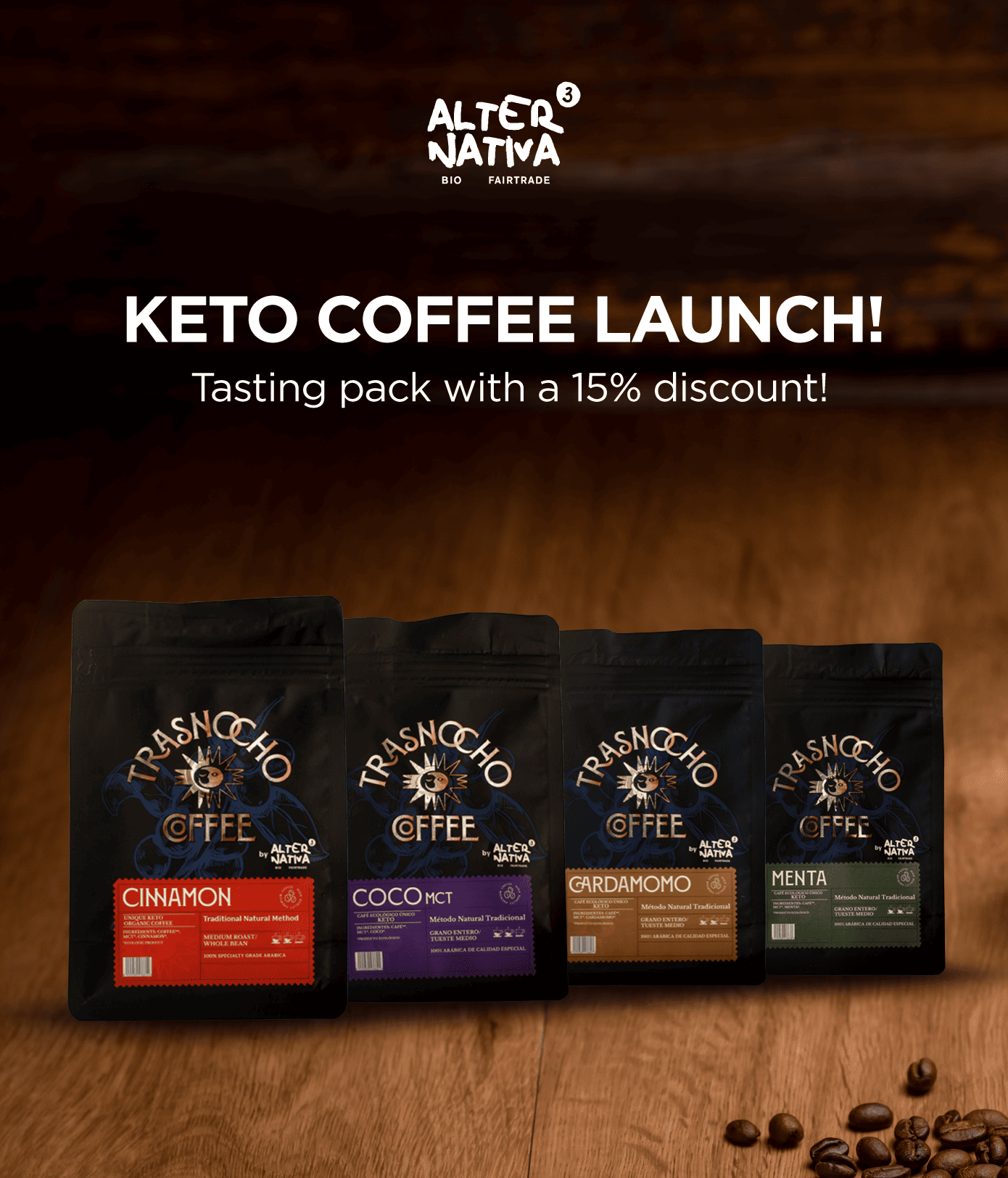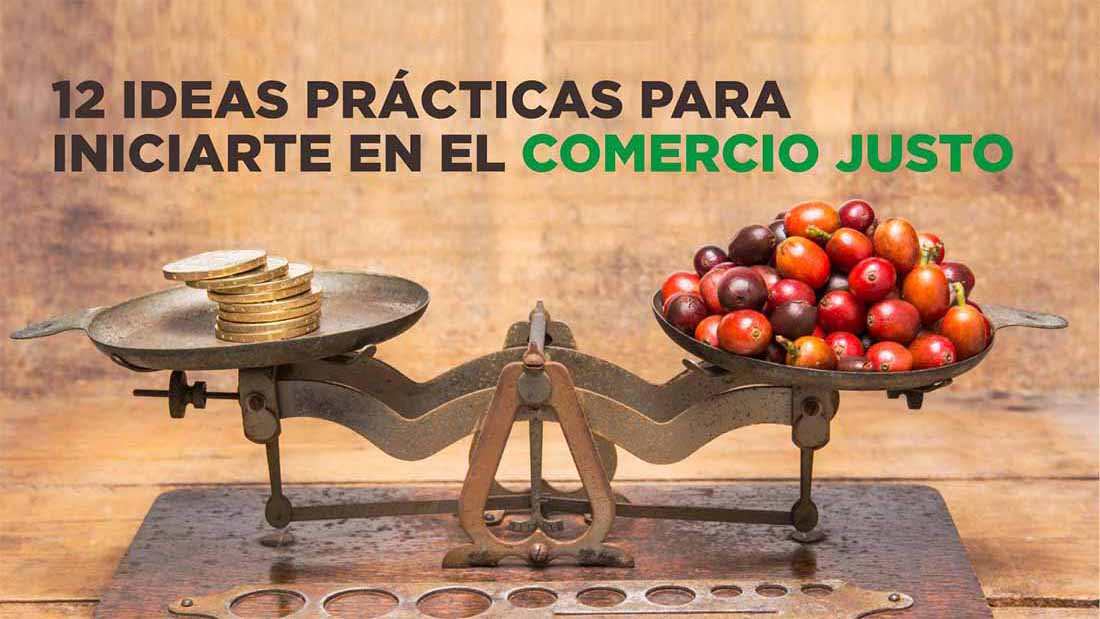What is Fairtrade, who certifies the products, how can I contribute? Today from AlterNativa3 tells you what we have discovered about Fair Trade and we give you 12 actions so you can take action TODAY.
My first doubts and learnings about Fair Trade
When I became interested in Fair Trade, I had many questions.
Reflections and questions
- They say they are certified products, with a seal. Who gives this seal, and can I trust them?
- Isn't this just another form of marketing to convince me to buy from one brand and not another?
- Can all products be Fairtrade and where can I find them?
And, the one that worried me the most: given the amount of injustice and pain in the world... is it really worth anything? I mean, I am clear about my power as a consumer. But, if I buy Fairtrade products, does that really have an impact on the lives of farmers?
I have been researching this topic for some time and will share with you what I have learned, so that you can judge for yourself.
What is Fair Trade
It is an alternative to conventional international trade. In other words, a trading system with different rules.
What is conventional trade looking for? The maximum profit for the seller. And it does so without taking two factors into account:
- The human cost. That is, the living conditions of the people who have grown, processed or manufactured the product.
- The cost to the planet
And another aspect that is of particular interest to me: how does the conventional trade promote its products? With every marketing technique there is. It doesn't matter if the advertising is misleading, sexist or promotes values that do not build a more critical and equitable society. You have to sell (the more the better). The end justifies the means.
This trade is one of the key elements of capitalism. Capitalism, you know, this pervasive system that entrenches global poverty and inequality.
I live in a capitalist society. I am very clear about that. And you know it too, don't you?
Is Fair Trade "Aid"?
It is not "aid", it is TRADE.
It is an alternative to conventional international trade: a solidarity-based and responsible trade system that seeks to eradicate poverty through the development of the people and communities that produce it.
In Fair Trade, a price is paid that goes beyond the price offered by the capitalist market. This system promotes fairness, i.e. respectful relationships between the people who process and grow, and the people who consume.
It is a type of economy in which exploitation is no longer an option.
So the only thing that is different is the money people in the South receive?
No, Fair Trade goes much further:
- Promotes associativity and empowerment of the people
- Ensures respect for the environment
- Encourages respect for local cultures, with their traditional methods of cultivation and processing.
Every time you buy a Fairtrade product you are supporting profound change and are part of the solution.
The 10 principles of Fair Trade
The World Fair Trade Organization (WFTO) is a global network of Fair Trade organisations present in more than 70 countries. This association has decided on the 10 principles of Fair Trade.
Fairtrade Labelling Organizations ODS
In other words, if a product wants to be labelled as Fairtrade, it must comply with these 10 principles.
I want to make it very clear... it must not comply with 1, 2 or 3 principles... no. It must comply with ALL of them. It must comply with ALL of them. They are these:
Which products can be Fair Trade?
In theory all products can be Fair Trade.
Typically, coffee, cocoa and sugar come to mind. Why? Because historically they are associated with the exploitation of people, slavery and all sorts of abuses.
But nowadays the list of Fair Trade products is much longer: cereals, pasta, dried fruits and nuts, spices, jams, honey, biscuits, sweets, juices, soft drinks, candies, snacks, alcoholic beverages, clothes, toys, children's material, household, jewellery, accessories, stationery, cosmetics and hygiene...
Do you know what the latest product to be added to the list is? Fairtrade mobiles.
In reality, everything that is bought and sold can be sustainably produced and ethically traded.
How do I know that a product is "Fairtrade"?
Because it carries a seal that certifies it. The seal will be on the packaging or on the label. Sometimes it's clearly visible, sometimes it's a bit more hidden... but what is clear is that, IF IT DOES NOT BEAR THE SEAL, IT IS NOT FAIR TRADE.
Who certifies the products?
As I have already told you, the World Fair Trade Organisation (WFTO) is the most representative body of the Fair Trade movement at the international level.
But to ensure that the certification is transparent and reliable, it is not the certification body that gives the seal, but other independent bodies. For example, the Fair Trade organisation.
All Alternativa3 products have been awarded the Fair Trade label.
To explain in detail how a product is Fairtrade certified would take... a whole book! But after doing some research on the subject, this has become clear to me:
- The certification process is long, laborious and completely transparent.
- Lasts for a minimum of 3 years
- Certification is renewed with regular checks
- Spot checks are commonplace
We are talking about very sensitive issues: avoiding the exploitation of children, preventing human trafficking, ensuring gender equality....
The checks are thorough and you can rest assured: IF IT BEARS THE FAIR TRADE LABEL, IT IS FAIR TRADE.
Why support Fair Trade?
Do you agree that we need to work towards a change of model? Fair Trade is a tool you can use to create a more equitable world.
- Millions of people are currently living in poverty.
- One third of people who have a job live in moderate or extreme poverty (yes, they work, but they can't make a living!).
- Forced and bonded labour directly affects 21 million people
- Child labour exploitation affects 11% of the world's children. That's 168 million children
These are data from the United Nations Development Programme. And they are data from before the start of the pandemic (today the figures must be worse).
What can you do?
Every time you buy a Fairtrade product, producer groups living in Africa, Latin America and Asia receive direct benefits:
- Fair pay for their work
- Health and education
- Eradication of child labour
- Gender equality
- Ecosystem protection


